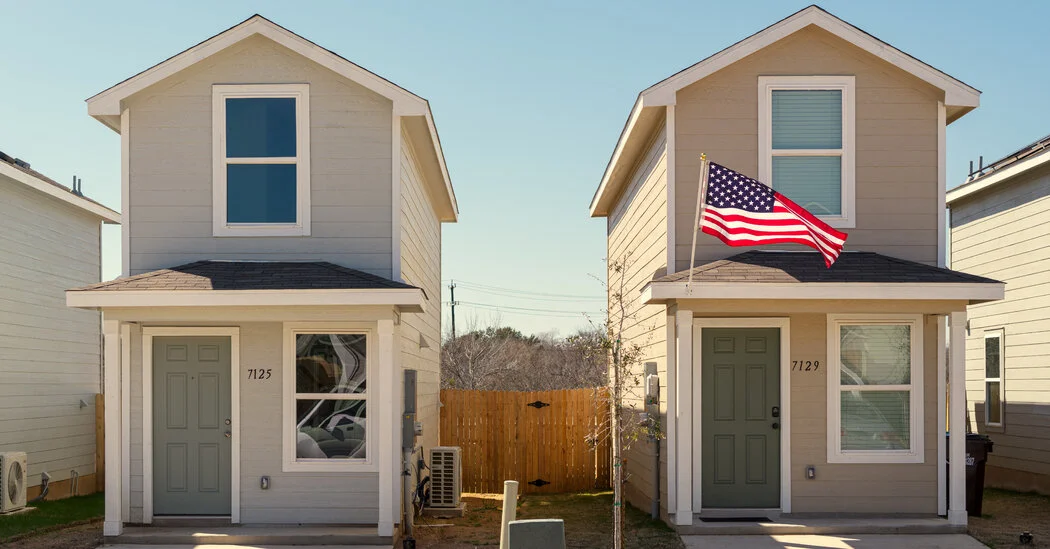The Great Compression: Thanks to soaring housing prices, the era of the 400-square-foot subdivision house is upon us
The Great Compression: Thanks to soaring housing prices, the era of the 400-square-foot subdivision house is upon us

The Great Compression

Robert Lanter lives in a 600-square-foot house that can be traversed in five seconds and vacuumed from a single outlet. He doesn’t have a coffee table in the living room because it would obstruct the front door. When relatives come to visit, Mr. Lanter says jokingly, but only partly, they have to tour one at time.
Each of these details amounts to something bigger, for Mr. Lanter’s life and the U.S. housing market: a house under $300,000, something increasingly hard to find. That price allowed Mr. Lanter, a 63-year-old retired nurse, to buy a new single-family home in a subdivision in Redmond, Ore., about 30 minutes outside Bend, where he is from and which is, along with its surrounding area, one of Oregon’s most expensive housing markets.
Mr. Lanter’s house could easily fit on a flatbed truck, and is dwarfed by the two-story suburban homes that prevail on the blocks around him. But, in fact, there are even smaller homes in his subdivision, Cinder Butte, which was developed by a local builder called Hayden Homes. Some of his neighbors live in houses that total just 400 square feet — a 20-by-20-foot house attached to a 20-by-20-foot garage.
This is not a colony of “tiny houses,” popular among minimalists and aesthetes looking to simplify their lives. For Mr. Lanter and his neighbors, it’s a chance to hold on to ownership.